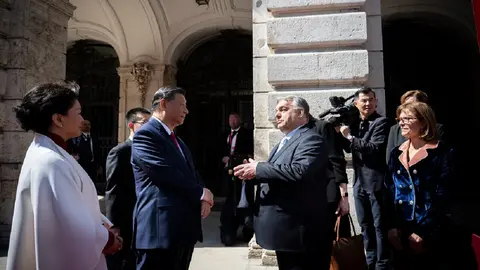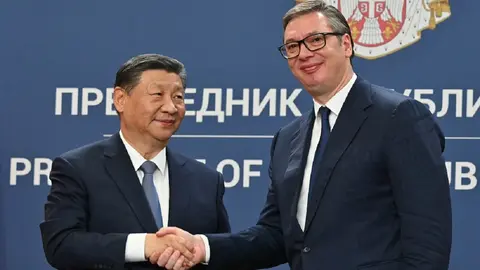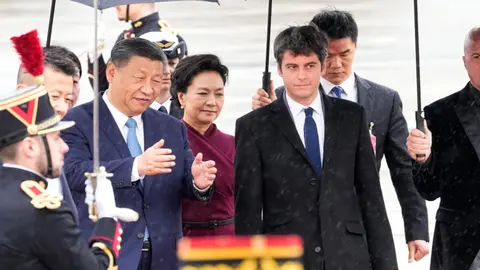Xi Jinping sets out his position

It was widely believed that China prioritises its commercial interests above all other chapters of the ongoing geopolitical transformation. Well, an analysis of his successive stays in Paris, Belgrade and Budapest shows, in my view, just the opposite. Indeed, Beijing is determined to lead a new alternative world order to the one led by the United States, and to do so, the first step was to demonstrate to the Europeans that it is betting on its own divisions.
Emmanuel Macron was right to call on the president of the European Commission, Ursula Von der Leyen, to share the meeting table in Paris, with the intention of showing unity with Xi and jointly addressing the major joint Euro-Chinese problems, especially the flood of electric cars to which China is subjecting Europe, and the Chinese president's alleged support for the operations of his Russian counterpart, Vladimir Putin, to consolidate the conquest of a large part of Ukraine's territory.
One important interlocutor was absent from the Paris negotiating table, German Chancellor Olaf Scholz, also invited by Macron. The German leader's refusal to sit at the table was no small gesture. It highlighted the fact that Germany puts its considerable commercial interests with China before the presumably superior interests of a Europe presumably still led by the once solid Franco-German engine. Such a European divide only enhances China's power, which can thus increase its superiority when negotiating with Brussels.
As if that were not enough, the next two legs of Xi's tour hammered home the point. First, in Serbia, whose President Aleksandar Vucic, while claiming his seat in the EU, has maintained an ambiguous position vis-à-vis Moscow. Vucic certainly supports Ukraine's territorial integrity, at least as he said at the Davos Forum earlier this year, but he does not support sanctions against Russia, which he also describes as "absolutely ineffective". Nor has Vucic forgiven NATO's bombing of Serbia during the Kosovo war, a resentment that has united him with Xi himself, who on this trip commemorated the bombing of his embassy in Belgrade on 7 May 1999. The mass bath he took in the Serbian capital reaffirmed his position that he still does not accept the excuses of the United States, which even then argued that "it was a mistake". Whether for domestic consumption or for his foreign interlocutors, Xi's refusal to accept such apologies is an obvious way of arguing for and justifying NATO's aggressive nature.
And, finally, the treatment of Hungarian leader Viktor Orban has been exquisite and cordial. In addition to extolling his 'independent' foreign policy, one assumes, of the EU itself, he has rewarded Hungary's chastened prime minister with a cascade of 18 economic cooperation agreements, as well as promoting Budapest to the status of Beijing's strategic partner.
In short, Xi Jinping has established a position of choosing the best allies from countries with autocratic regimes, which above all have two main characteristics: that they are not particularly vigilant about respect for human rights and the like, and that they are in need of investment and credit from China.
Following this tour, Xi Jinping is hosting Vladimir Putin later this month.
This will be a very different meeting from that of 2022. Russia has gone on the offensive in Ukraine, which for the first time since the invasion of Russian troops admits it could lose the war; the United States is struggling with a huge polarisation, even with symptoms of civil war; and Europe is accentuating its divisions, while it is losing ground in Africa by leaps and bounds, the destabilisation of which would inevitably spread to the Mediterranean before metastasising throughout the continent.




